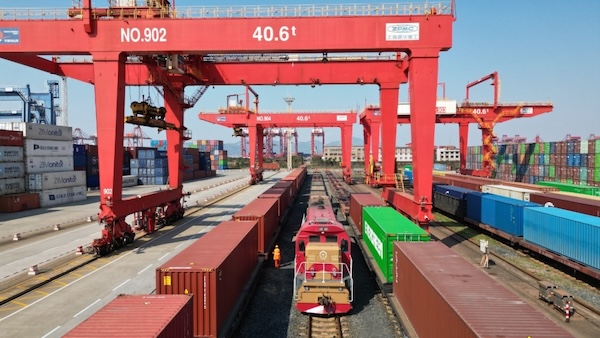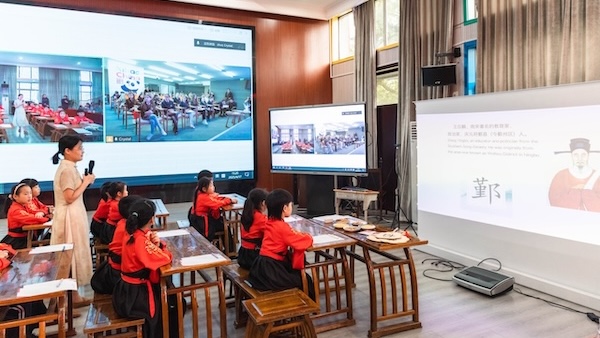Ningbo's clothing firms look to weave new opportunities
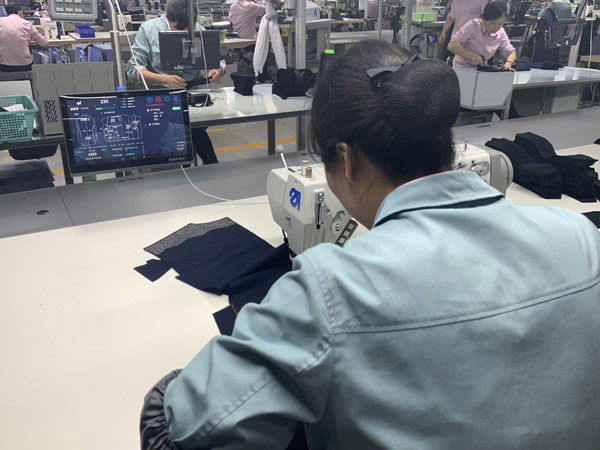
A worker makes suits at Youngor in Ningbo, guided by an interactive system. [Photo by FANG AIQING/CHINA DAILY]
I joked with someone from the Beyond Group, the Ningbo-based garment and home textile company: "You beat my mother's little business 20 years ago!"
My mom had a small business making handmade bed linen in our hometown in Zhejiang province back then. She and my grandmother also made beautiful clothes for the children in our extended family, and they were quite good as self-taught designers.
Before long, due to a rise in costs and less demand for handmade products, my mother turned to selling branded clothes, many of them were from Ningbo enterprises, before she eventually closed her shop.
Her tailor friend barely clung on to his old job, before starting to help fix computers and solve our internet problems.
Now, I guess the transition our family underwent was just a small, focused reflection of the rise of the industrialized production of clothing at the time.
Major Ningbo suit manufacturers like Youngor and Romon, along with womenswear brands like Tonlion, which is attached to the Beyond Group, became household names during those years.
I would say that these enterprises have been carriers of China's economic development over recent decades.
Managers of these companies, just like many of those tailors that still focus on customized suits, have inherited and developed the spirit of the well-known hongbang tailors that have prevailed for more than a century-traits like honesty, hard work, flexibility and a strong ambition to benefit society, or at the very least, their neighbors.
Also, with the typical spirit of entrepreneurship rooted in Zhejiang's flourishing private economy, they have made the best of the preferable social environment created by China's reform and opening-up. But they now face other challenges brought about by global competition, changes in consumption ideas and the constant demand for technical progress in this era of artificial intelligence.
Diversified strategies are being applied. Some have outsourced their production and are focusing on improving their management and research and development.
The ultimate goals are lowering labor costs, applying new technologies, uncovering potential new markets and seeking added value beyond manufacturing itself, which, to some extent, represents a logical transformation and upgrade from traditional manufacturing.
However, there's still a long way to go, not only in terms of making the industry smarter and more flexible, but also, when it comes to adapting to the pains of transition, like the pressure coming from short-term investment and potential layoffs.
I'm impressed that there are still around 200 employees who have been working at Romon since its establishment 35 years ago. Most of them are going to retire in the near future.
Yet, such career longevity may not be available to the younger generation. We have to balance the burden of both the opportunities afforded to us along with the anxiety of continual learning and improving ourselves in an era with rapidly evolving technology, in order not to be left behind by social development.

 Ningbo seabird project seeks international volunteers
Ningbo seabird project seeks international volunteers 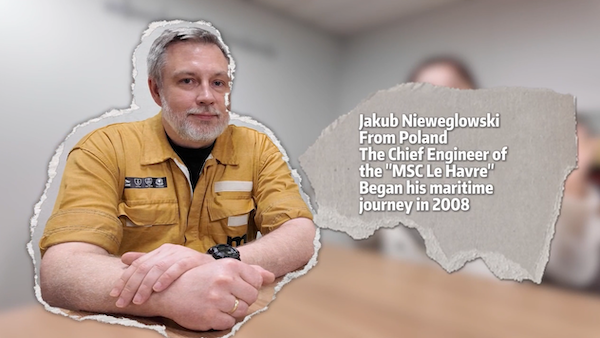 Jakub's journey: From shipyard to sea
Jakub's journey: From shipyard to sea 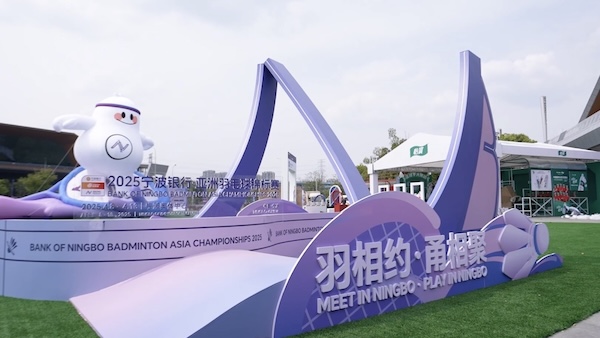 Badminton Asia COO applauds Ningbo
Badminton Asia COO applauds Ningbo 